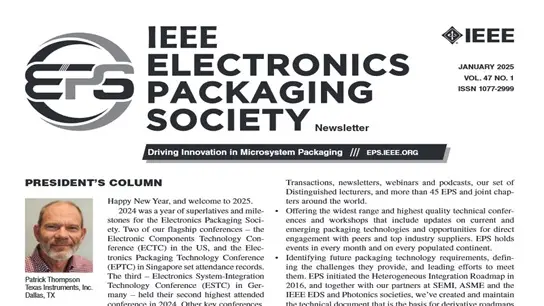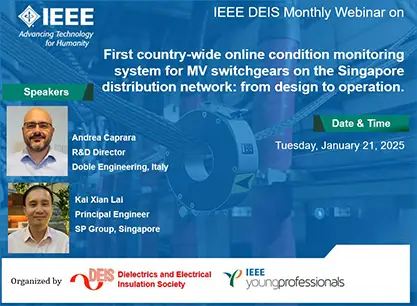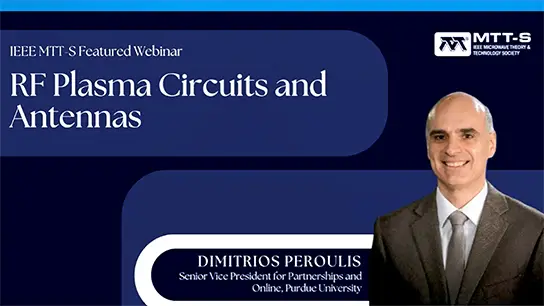Measurement and Verification (M&V) for Conservation Voltage Reduction (CVR)
Ahmed Saber, Operation Technology, Inc., Andrew Wilson, Xcel Energy, Mesut Baran, North Carolina State University, Eric Gupta, Xcel Energy, Sepideh Fard, ComEd, Mike Simms, Duke Energy, Victor (Shengyang) He, BGE, Eric Wedemeyer, BGE, Hamid Abdurrahim, BGE, Yuan Liao, University of Kentucky, Zhaoyu Wang, Iowa State University, Zinn Morton, PEPCO, Damien Tholomier, Varentec, Dongbo Zhao, Argonne National Laboratory, Tu Anh Tran , Reinhausen Manufacturing Inc., Farnoosh Rahmatian, NuGrid Power, Fei Ding, National Renewable Energy Laboratory, Alfredo Contreras, Southern California Edison
-
Members: FreePES
IEEE Members: $45.00
Non-members: $70.00Pages/Slides: 45
19 Oct 2021
The electric power grid is undergoing an unprecedented transformation into a more efficient, reliable, resilient, and clean infrastructure. This transformation is primarily supported by more comprehensive grid monitoring and control, enabled by advanced metering infrastructure, distribution automation, and phasor measurement units, among other sensing and measurement technologies. This enhanced monitoring and control facilitates multiple viable practices, most notably Conservation Voltage Reduction (CVR) and Volt-Var Optimization (VVO). CVR, which has gained renewed interest in recent years, is a cost?effective way to deliver energy efficiency benefits to customers. However, one of the most significant challenges in CVR application is the measurement and verification (M&V) of its effects. Once CVR is applied, there is no benchmark load consumption measurement, which complicates assessing the CVR's real impact. This issue is complicated by the difficulty of distinguishing between changes in load and energy consumption caused by variations in temperature and customer usage patterns over time and those energy changes caused by the activity of regulating devices with and without CVR.
The IEEE CVR M&V Standard Taskforce was tasked by the IEEE Volt-Var Working Group in October 2020 to study the need for an industry-accepted standard for CVR M&V data collection and management. This standard aims to complement the group's existing work, including the IEEE P1885 Draft Guide for Assessing, Measuring, and Verifying Volt-Var Control Optimization on Distribution Systems; IEEE P1889 Guide for Evaluating and Testing the Electrical Performance of Energy Savings Devices; and IEEE P1459 IEEE Standard Definitions for the Measurement of Electric Power Quantities Under Sinusoidal, Nonsinusoidal, Balanced, or Unbalanced Conditions. The taskforce conducted a comprehensive survey and performed thorough studies using collected data from four electric utilities. This report provides an in-depth review of the survey results and simulations.
The IEEE CVR M&V Standard Taskforce was tasked by the IEEE Volt-Var Working Group in October 2020 to study the need for an industry-accepted standard for CVR M&V data collection and management. This standard aims to complement the group's existing work, including the IEEE P1885 Draft Guide for Assessing, Measuring, and Verifying Volt-Var Control Optimization on Distribution Systems; IEEE P1889 Guide for Evaluating and Testing the Electrical Performance of Energy Savings Devices; and IEEE P1459 IEEE Standard Definitions for the Measurement of Electric Power Quantities Under Sinusoidal, Nonsinusoidal, Balanced, or Unbalanced Conditions. The taskforce conducted a comprehensive survey and performed thorough studies using collected data from four electric utilities. This report provides an in-depth review of the survey results and simulations.
Chairs:
Chair: Shakawat (Shakil) Hossan, ComEd,
Vice Chair: Amin Khodaei, University of Denveri,
Secretary: Wen Fan, ComEd
Vice Chair: Amin Khodaei, University of Denveri,
Secretary: Wen Fan, ComEd
Primary Committee:
Transmission and Distribution Committee (T&D)
Sponsor Committees:
Distribution Subcommittee, Volt-VAR Working Group, CVR M&V TF


